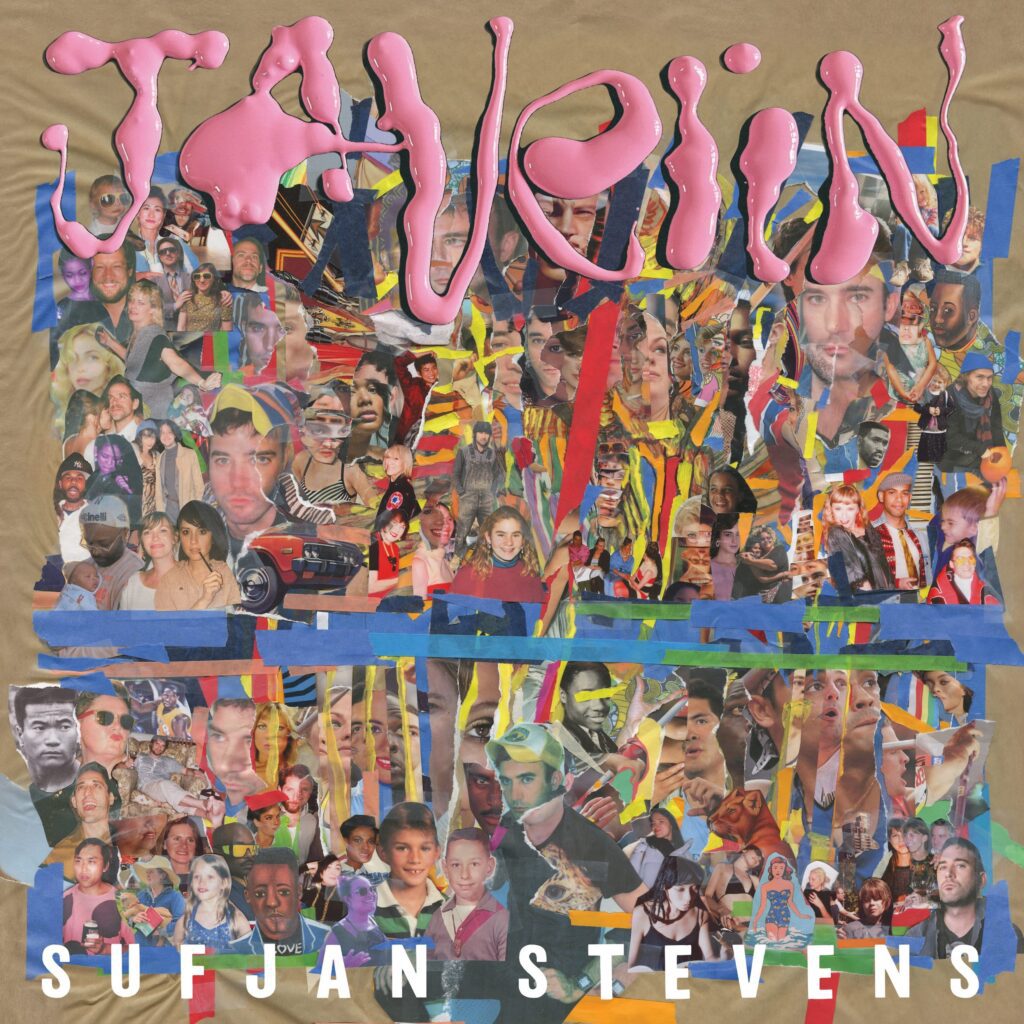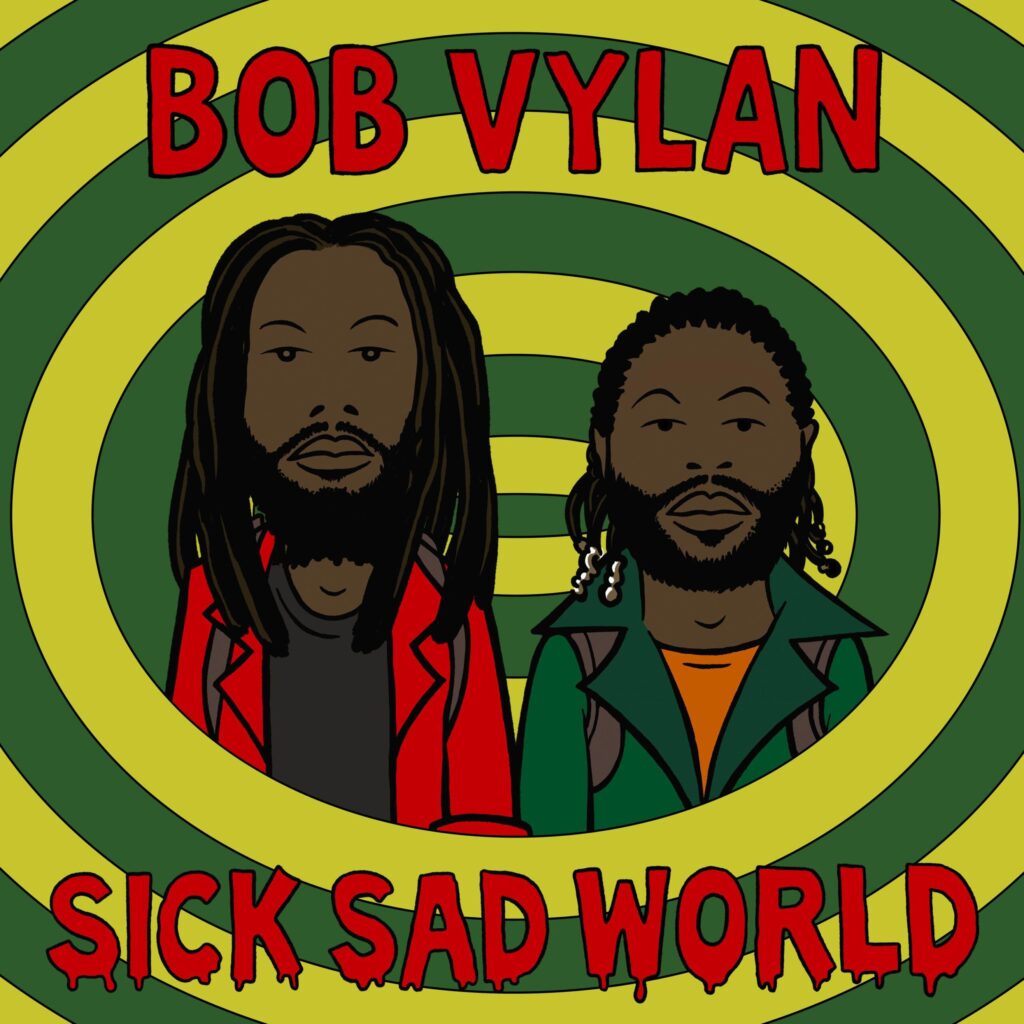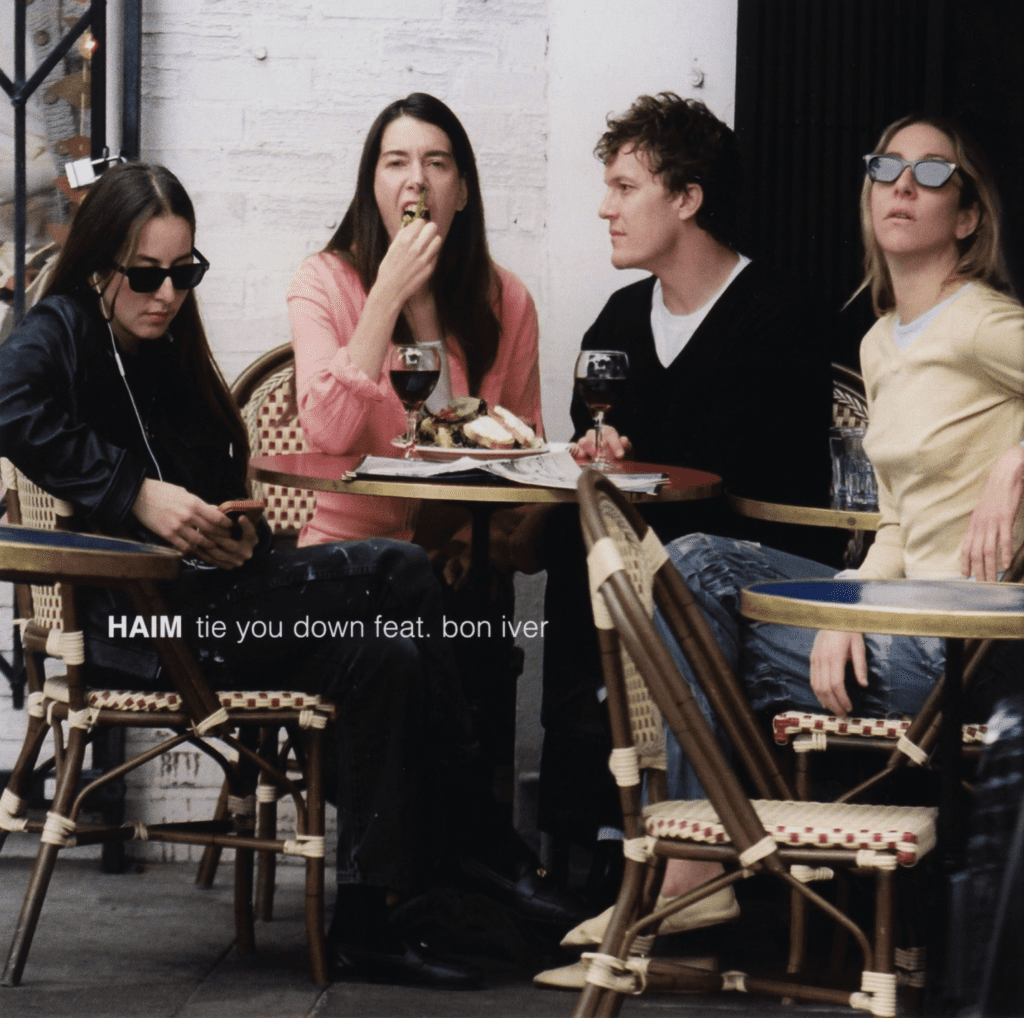
Sufjan Stevens is going to trick you. He’s going to start the songs on his new album Javelin in hushed and minimal Carrie & Lowell mode, and then those songs are going to explode into electro-organic widescreen pageantry that seems to blur his whole career together — like the somber splendor of Michigan cut with the madcap anxiety of The Age Of Adz, or the hi-fi community theater vibes of Illinois awash in the existential despair of The Ascension. Hollywood music supervisors take note: The songs don’t stay quiet, but they sure do stay pretty.
Javelin is a tough one to pin down and an easy one to enjoy. Sonically, he’s never made an album quite like this, but it’s also the Sufjan album that feels least new, as if he’s run out of sonic horizons to cross. The longer I sit with the album, the less of a problem that is. If you’ve ever loved this guy’s music, you will be predisposed to love Javelin — and you’ll be right to. This is Sufjan in his veteran era, pulling off all his signature moves. He’s LeBron James, pushing 40, still nailing fadeaways and driving to the basket to defy gravity, still showing the kids how it’s done. (Sufjan himself is pushing 50, but the two mononymous Midwesterners did burst onto the national scene at the same time; both were very important to me in college and still are.)
The main distinguishing factor setting this record apart from the rest of Sufjan’s discography is a lyrical fixation on heartbreak. Even the requisite reference to Jesus on “Everything That Rises” comes as Sufjan begs to be rescued from love’s smoldering remains. It wouldn’t be right to say he’s never focused this acutely on himself, or that he’s never been this depressed. Of his more recent work, Carrie & Lowell explored his grief over the death of his estranged mother, while The Ascension was defined by spiritual and societal malaise. His own sadness has always been a core element of his music. But Javelin is the closest thing we’ve ever gotten to a Sufjan Stevens breakup album — like if Blood On The Tracks had electronic beats, a twee choir, and a song called “My Red Little Fox.”
The singles probably tipped you off. “So You Are Tired,” our first taste of Javelin, revealed the distress and contempt Sufjan apparently feels over the collapse of a romance. The next one was called “Will Anybody Ever Love Me?,” and its lyrics sank even deeper into melodrama than the title: “Tie me to a tiny wooden raft/ Burn my body, point me to the undertow.” Most of the rest of the record follows suit. On opener “Goodbye Evergreen,” Sufjan acknowledges the cracks in the facade and braces himself for bad news. “My Red Little Fox” gets into the awkward details of communication that can plague a failing relationship: “Kiss me with the fire of gods/ Just say what you want/ Say it out within/ Without that funny little cough.” Penultimate track “Shit Talk” elevates these kinds of spats to epic scale; embittered yet tender, expansive yet intimate, it’s one of my favorite Sufjan songs ever.
All these laments about decaying love are couched in a gorgeous musical fabric. Every sound on Javelin glimmers with holographic beauty, even (especially) the basic singer-songwriter building blocks like sustained piano chords, fingerpicked acoustic guitars, and whispered singing. As more elements come surging into the mix, they cohere into arrangements that feel like a graceful summary of Sufjan’s catalog to date. The solemn piano balladry of “Goodbye Evergreen” is quickly consumed by a clattering digital drumbeat, then resolves into something like the wide-eyed chorale of “Chicago” mellowed into melancholy. “Genuflecting Ghost” is like the swooning soundtrack to a 1950s movie gone full Postal Service. “A Running Start” mirrors its title with some of the smoothest, most aerodynamic post-rock folk-pop of Sufjan’s career.
“There’s A World,” the Neil Young cover that ends the album, applies that sonic palette to a more hopeful sort of wistfulness. It sounds like the first rays of a new sunrise, a once-bleak landscape aglow with possibility. For the first time on the record, Sufjan sounds excited about the future. Creatively speaking, he has good reason to be. (Medically, it sounds like he has a hard road ahead, but he has a good attitude about that too.) I wasn’t thrilled with Javelin on my first few listens. At first, it struck me as Sufjan spinning his wheels after running out of ideas. But the more time I’ve spent with these songs, the more amazed I am at their synthesized complexity and their depth of feeling, at Sufjan’s ambitious composition and economy of language. The album now feels more like a peak among many peaks, a classic among many classics — one of the richest, most fully realized versions of the vision Sufjan has been chasing for decades. I suspect I’m going to be coming back to it for a long time.
Javelin is out 10/6 on Asthmatic Kitty.



